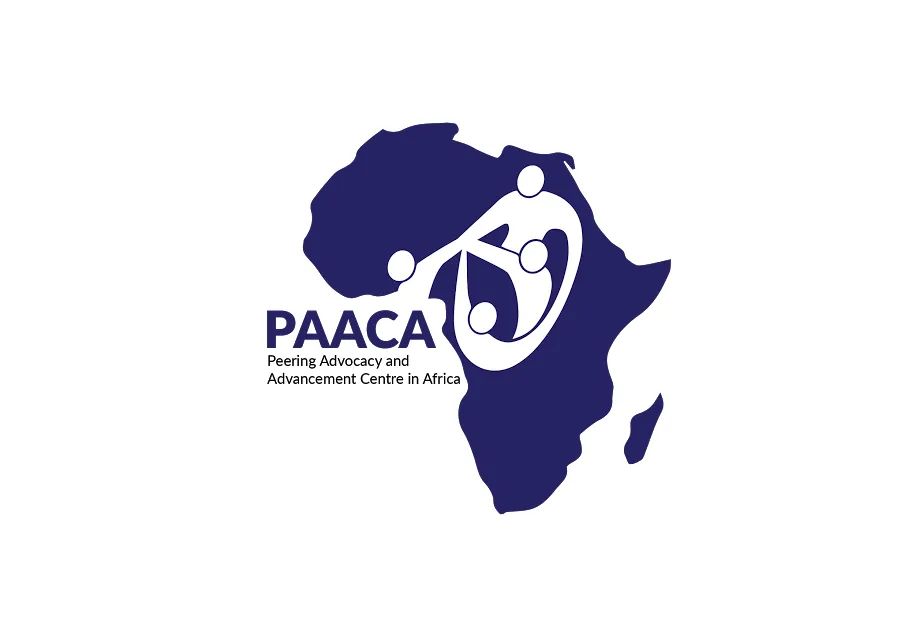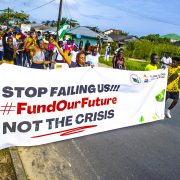Strengthening Democracy: PAACA Dialogue Stakeholders on Electoral Law

…Calls for Collective Responsibility from CSOs
A one-day town hall meeting to strengthen Nigeria’s democracy and electoral processes has been held, with stakeholders engaging in robust discussions on the new electoral law, including areas that require reform and improvement.
The meeting, organized by Peering Advocacy and Advancement Centre in Africa (PAACA), a non-governmental organization working to strengthen citizens’ engagement, democracy, governance, and social accountability, was held on Thursday, April 25, at Havilah Towers Hotel, Uyo.
With support from the MacArthur Foundation, the meeting aimed to familiarize stakeholders with the new electoral laws, legal framework governing elections in the country and acquaint them with the guidelines set by the Independent National Electoral Commission (INEC).
Stakeholders including civil society organizations, community leaders, media representatives, and electoral officials in attendance engaged in interactive sessions, asking questions and seeking clarifications on specific aspects of the new electoral law.
PAACA’s Executive Director, Mr. Ezenwa Nwagwu, in his opening address disclosed that the meeting was organized to interface and deepen the understanding of CSOs and stakeholders on the electoral laws, and harvest inputs that will form policy documents to be sent to the National Assembly as part of plans for a better election.
“There was lots of ignorance that played out during the last elections which has prompted the need for us to speak with stakeholders and leaders to review the issues observed.
So in 2023, we came to the conclusion that quite a lot of people didn’t have this knowledge, and not extended the knowledge. And so there was a lot of ignorance, a lot of misconceptions, which led to some of the challenges that we faced.
And that’s how we came to the conclusion that we have the knowledge, and we can scale knowledge around the network,” he added.
While noting that no single entity should be held solely responsible for the challenges facing the electoral process, Nwagwu highlighted the importance of addressing mindset issues, strengthening institutions, and promoting transparency and accountability among all stakeholders.
Nwagwu also stressed the need for self-reflection within civil society organizations, stating that some CSOs may be partisan and compromise their integrity by supporting politicians.
However, he called for a holistic approach to addressing electoral challenges, stressing that “election is a multi-stakeholder engagement” and that “we need to share the responsibility” and work together to improve the process.
Akwa Ibom State INEC Resident Commissioner, Mallam Isah Shaka Ehimaeke, represented by Deputy Director, Voters Education, Mr. Michael Umanah, commended PAACA for its efforts to promote democratic governance.
He praised PAACA’s initiatives to foster transparency, integrity, and fairness in the electoral process, noting that its efforts in this regard are truly commendable.
He stated that INEC is making efforts to engage with stakeholders to enhance the electoral process, integrity, and credibility.
“INEC has made enormous developmental strides and advancements that have placed us on a pedestal, making us stand out above other Election Management Bodies. The electoral system requires regular interactions between the Commission and critical stakeholders to enable the former to inform, educate and enlighten the latter on the various aspects of the electoral process, thereby enhancing the capacity to make informed decisions,” he stated.
In a Goodwill message, State Director of National Orientation Agency, Mr. Mkpoutom Mkpoutom, affirmed the agency’s commitment in communicating government programs and activities, including electoral processes.
He stressed the importance of learning from past mistakes to improve future elections, citing the need for continuous progress in Nigeria’s democracy.
He expressed the agency’s commitment to improving its efforts, despite challenges faced in the past, to ensure successful elections in 2027 and beyond, adding that NOA’s goal is to facilitate a well-informed and engaged citizenry, enabling Nigeria to become a “smart city” in electoral matters.
Citing bad leadership as a hindrance to good governance, representative of Inter-party Advisory Council and State Chairman of the People’s Redemption Party, Akwa Ibom State, Rev. Aniebiet Emmanuel noted that there is need for attitudinal change in leadership to address the country’s electoral challenges.
He commended PAACA for their efforts towards electoral reform, explaining that persistence in fighting for good governance will one day lead to positive change.
To make Nigeria’s elections more inclusive, Mrs. Joy Ubong, a representative of Persons Living with Disabilities (PWDs), called for greater consideration for PWDs in the electoral process. She noted that during the last general elections, the concerns of PWDs were overlooked and urged INEC to take steps to address this.
She recommended that in subsequent elections, INEC should provide braille papers for blind voters, sign language interpreters for the deaf cluster, priority voting be given to PWDs, a colon provided on the ballot paper with disability type, waiting areas for persons with albinism and accessible polling booths, ramps.
Going forward, panelists urged INEC to rebuild confidence and trust among the electorate, collaborate with stakeholders to enhance the inclusivity of the electoral process, and regulate political parties’ activities, including their finances, to prevent electoral fraud such as vote buying and selling.







